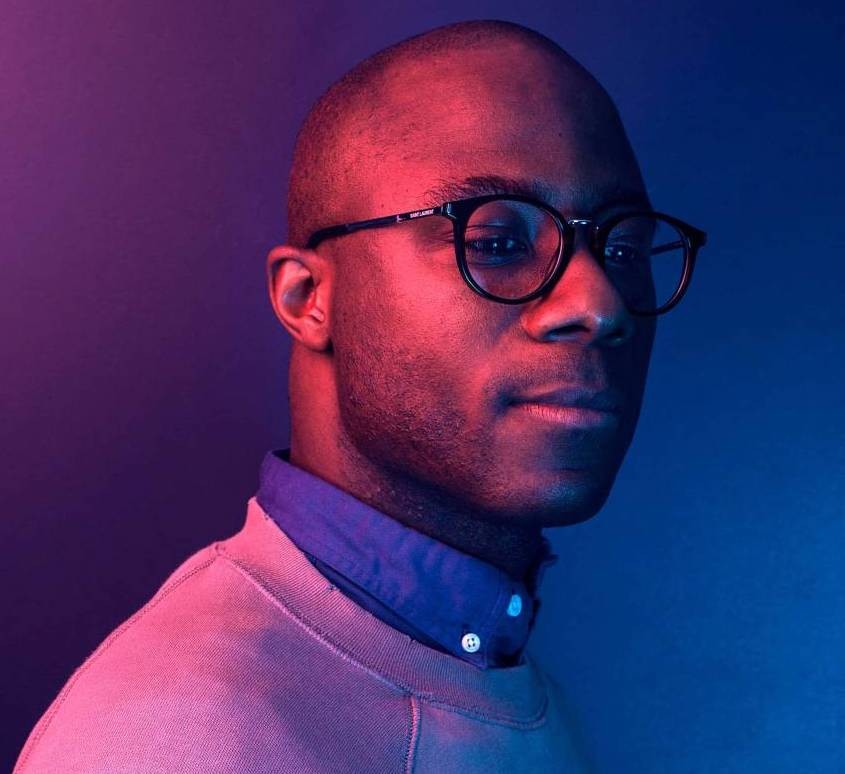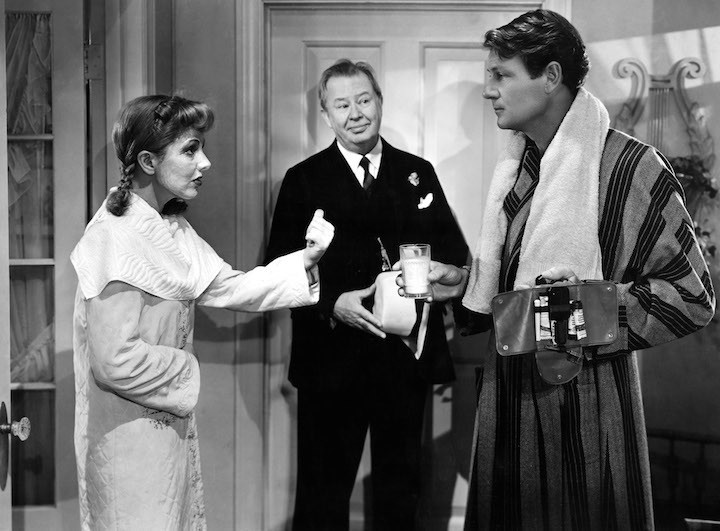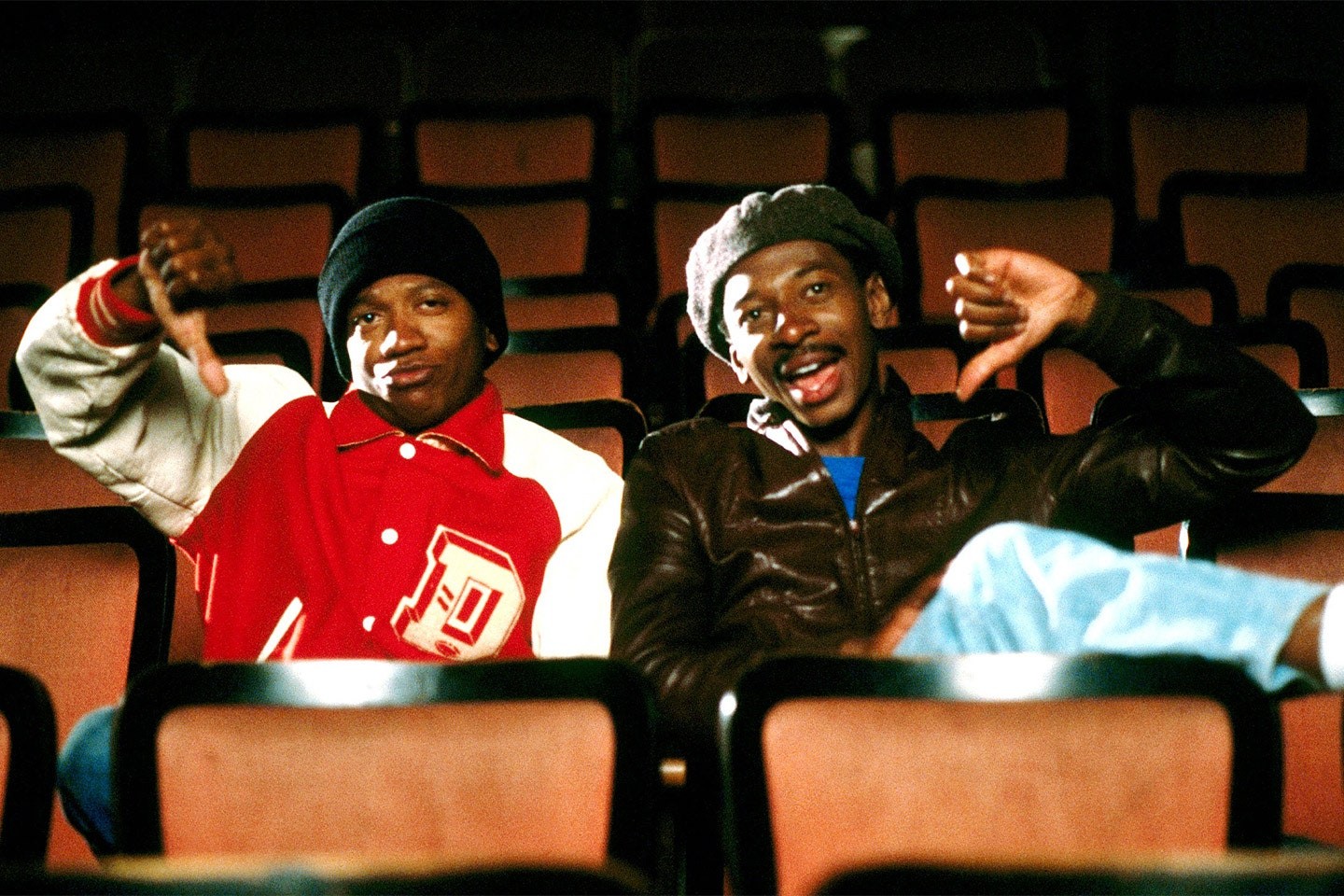When Miriam Bale came to Memphis last November to be on the jury for the 20th annual Indie Memphis Film Festival, she didn’t know it would change her life. “It was very well organized and warm,” she says. “It was one of my best experiences at a festival. There are a lot of places that don’t have that loving vibe.”
As the festivities wound down, she found out that festival programmer Brandon Harris had been hired away by Amazon Studios. “So a window opened up, and the sun came out,” she says.
Bale is a Bay area native who has interned for legendary documentarian Les Blank, programmed film for museums and venues on the East and West Coasts, and written film criticism for The New York Times. At first, she was hesitant to apply for the job of Indie Memphis programmer, but by the time 2018 rolled around, she found herself tasked with filling up multiple screens over seven days in November.

Miriam Bale
Along with shorts programmer Brighid Wheeler, she has assembled an ambitious and inclusive lineup for what promises to be the biggest Indie Memphis yet.
Asked if she had a guiding philosophy behind her film choices, she says “It was just to do what you guys had always done, but ramp it up. … The structure was already there, and so was the idealism. It’s not the Memphis Film Festival. It’s the Indie Memphis Film Festival. It’s all about independence.”
Indeed, many of the films on offer at Indie Memphis 2018 feel like a call back to the festival’s formative years, when heart was valued over polish, and unconventional voices were not only tolerated but embraced and celebrated.
Bale says working as a film critic opened her eyes to the predominantly white, male power structure that has historically dominated the mainstream film industry, shutting out the voices of women and people of color.
“As a writer, I would criticize that, but it seemed like I was writing the same thing over and over again. So instead of criticizing, I was able to work with [Indie Memphis Executive Director] Ryan [Watt] and Brighid [Wheeler] to create a utopian version of what film not only could be, but could be really easily with just the resources we have around. We wanted to create a utopian world, and that’s what we did. … We were very adamant about the festival reflecting the city. We’ve tried to make an effort to find programming that would appeal to everyone.”
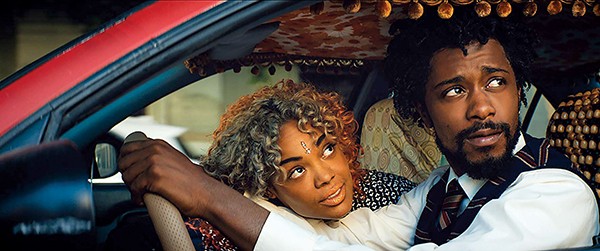
Sorry To Bother You
Boots and Barry
When Bale was tapped for the Indie Memphis programming position, the first film she thought of was Sorry to Bother You. “I heard about this film when it was in grant stages,” she recalls. “I thought it was perfect. It’s smart and political, but at the same time it’s creative and imaginative.”
Director Boots Riley struggled for years to get Sorry to Bother You made. Riley first gained attention as the founder of The Coup, a hip-hop group from Oakland, California, whose songs are stridently anti-racist and anti-capitalist in the tradition of Public Enemy and Rage Against the Machine. His debut film reflects the same concerns, but with a much more surrealist, satirical bent.
Cassius Green (Lakeith Stanfield) is a struggling 20-something living in an Oakland that is at once familiar and hyper-real. Frustrated by his lack of opportunity and sick of living in his uncle’s garage, he applies for a job at RegalView, a telemarketing company that Green soon learns has some shady and sinister connections. He’s good at the job of selling strange stuff to random people, because he has an excellent “white voice” (dubbed by comedian David Cross), and is quickly promoted to the rank of Power Caller.
But when he is tasked with selling people on joining WorryFree, an all-inclusive community that treats its members as slaves in all but name, he comes into conflict with his girlfriend Detroit (Tessa Thompson), a politically radical artist, and Squeeze (Steven Yeun), a union organizer who leads a strike against RegalView. Things turn wildly science-fictional once Green is introduced to Steve Lift (Armie Hammer), a Silicon Valley-style entrepreneur who inspires cult-like reverence from his employees/followers.
Sorry to Bother You debuted at Sundance, where it was quickly snatched up by Annapurna Pictures and became a surprise hit upon wide release last summer, earning $17.5 million on a $3.2 million budget. When an Indie Memphis screening with Riley in attendance was first announced for Studio on the Square at midnight on Friday, November 2nd, it quickly sold out, and the festival added a second screen to satisfy audience demand.
Earlier that day, Riley will deliver the keynote address at the first Black Creators Forum (November 1st, noon, Hattiloo Theatre), an event organized by Bale and produced by Jason Farmer. The highlight of the Black Creators Forum is a pitch rally where 12 African-American directors will put forth their ideas for films to be made in Memphis, with the winning pitch receiving a $10,000 grant.
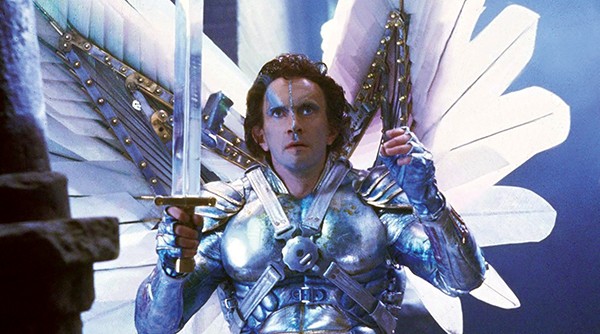
Brazil
Riley will also host a screening of a film that was a major inspiration for Sorry to Bother You. Terry Gilliam’s 1985 masterpiece Brazil (November 2nd, 9 p.m., Studio on the Square) shares the theme of a somewhat timid man taking on an insane, surreal world gone mad.
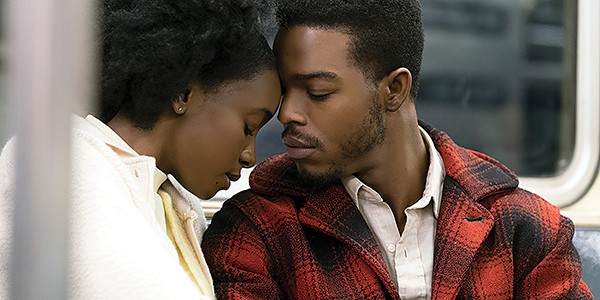
If Beale Street Could Talk
In another big get for Indie Memphis, Saturday night will see the regional premiere of the highly anticipated new film by Barry Jenkins, If Beale Street Could Talk (November 3rd, 6 p.m., Studio on the Square). Jenkins, who appeared at Indie Memphis 2006 with his first film, Medicine for Melancholy, won the 2016 Best Picture Oscar with Moonlight, an unprecedented feat for an independent film with a $1.5 million budget. If Beale Street Could Talk is an adaptation of the 1974 novel by James Baldwin, which, despite the Memphis-centric name, is set in Harlem, where a pregnant young woman played by KiKi Layne must prove the innocence of her finance, played by Stephan James, who has been falsely accused of a crime.
Bale says Riley and Jenkins are perfect fits for Indie Memphis. “To me, both of these filmmakers represent great filmmaking, great black filmmaking, and great political filmmaking that is imaginative and creative in different ways.”

Rukus
Bring the Rukus
Indie Memphis 2018 features work from a record 112 Memphis-based filmmakers. When Brett Hanover’s first documentary short “Above God” premiered at Indie Memphis 2006, he was one of about a dozen directors competing in the Hometowner category.
The subject of “Above God” was Gene Ray, who became one of the first internet celebrities when his strange website filled with borderline nonsensical ramblings about a “Time Cube” went viral. “I was interested in internet cultures,” says Hanover, who was 16 when he made the film. “I was interested in how this one guy’s words got spread and interpreted by so many people.”
Another internet subculture that fascinated Hanover was the Furries, a small group devoted to dressing up in elaborate costumes that transformed them into anthropomorphic animals. Back then, furries were picked out for ridicule as weirdos with an incomprehensible sexual fetish. But Hanover saw something deeper in their endless Livejournal posts and secretive conventions. That’s when a mutual friend introduced him to a person in the online furry community who called himself Rukus. “Initially, I had a lurid fascination with what he was writing, because it was really intense, personal, and raw.”
But Hanover soon discovered that Rukus was different things to different people. Little of his life story checked out, and he maintained a number of conflicting online personae.”It became an interesting mystery, to figure out what was real and what was embellished. … If he’s not telling the truth about something, that means he’s not telling the truth about it for a reason. It says something about him.”
Hanover and Rukus became online friends and even met in person after a Memphis furry convention. But eventually they drifted apart, and in 2008, Hanover got word that Rukus had committed suicide. “I became very obsessed with finding every trace of him online,” Hanover says.
In 2008, Hanover, with the help of his collaborators Alanna Stewart and Katherine Dohan, set out to make a documentary about Rukus and the online world where he had found connection. But Rukus (November 3rd, 6:30 p.m., Playhouse on the Square) could not be a conventional film. “If I’m going to make a documentary about someone else that’s really personal, I need to do the same thing with myself. I had not done that, put myself into my other films.”
Rukus, which Hanover worked on for a decade, in which he went to college and became a teacher of film and media, mixes verité footage, recreations of actual events, and fictional scenes. “The reason it’s like that is that everyone who is in it has different personae, who are all sort of real depending on what media they’re using to communicate or who their audience is. Rukus had all these different characters that he would use. I think now there’s more of a sense of, ‘here’s your real identity, and if you’re pretending to be something else online, that’s fake.’ Back then, it was understood that these different facets of you would be expressed through different identities.”
Hanover and Stewart co-wrote and acted in many of the staged sequences, some of which reflected the ups and downs of their own relationship. “I think the closest you can get to capital-T Truth in a documentary is to show your perspective. Give people a sense of your own biases, of how the thing you’re watching is being framed. Making myself into a character is a way of doing that, as opposed to saying that this is the story of Rukus. Which it’s not. It’s the story of Rukus told by this kid who was going through stuff.”

Mr. Soul!
He’s With The Band
Music documentaries have traditionally been popular at Indie Memphis, and this year’s opening night film is an exceptional one.
In 1968, Ellis Haizlip was a struggling producer in New York who got an opportunity to produce a talk show on the proto-public television station NET. But this would be no ordinary Tonight Show clone. Over the next five years, Soul! would become a vital voice in the African-American community, as the first and, at that time, only hour of television devoted to shining a spotlight on black culture.
Mr. Soul! (November 1st, 6:30 p.m., Halloran Centre), directed by Ellis’ niece Melissa Haizlip, begins with an electrifying performance of “Tired of Being Alone” by a 25-year-old Al Green. It’s just the first of the stunning array of musical guests Haizlip, who apparently knew everyone worth knowing, had on his show. Patti LaBelle, B. B. King, Wilson Pickett, Gladys Knight, Billy Preston, and Stevie Wonder all make an appearance in Mr. Soul! Many acts, including the Delphonics, Rasheed Roland Kirk, Kool and the Gang, and Earth Wind and Fire made their television debut in Haizlip’s well-appointed studio.
But the music, which serves as the hook for Mr. Soul!, was only part of the story. Haizlip was an intellectual who studied at Howard University, and despite a rough beginning as “about as bad an interviewer as you can imagine,” he booked fascinating guests, such as Harry Belafonte, Muhammad Ali, James Baldwin, and Toni Morrison. He put poetry and modern dance on the air when no other outlet would touch them. During one riveting sequence, Haizlip, who was gay, takes Louis Farrakhan to task for his homophobia while surrounded by uniformed cadres of the Nation of Islam.
Soul! sought to put black arts and culture on an elevated intellectual plane that it was afforded nowhere else, and Mr. Soul! is appropriately framed as a prestige documentary. But it’s equally fascinating and fun. As Haizlip says, “Place your hand on the television to feel the vibes we’re sending out to you!”
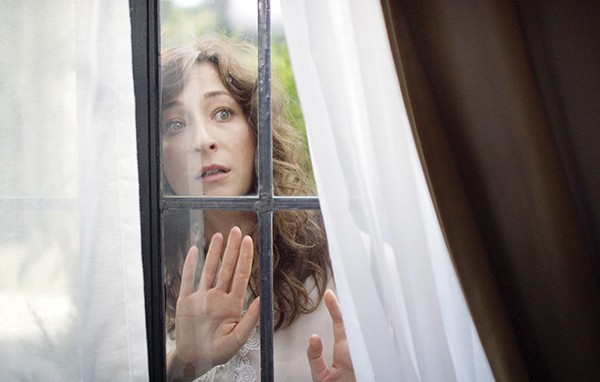
Clara’s Ghost
A Family Affair
One of the unsung heroes of David Letterman’s reign on network television is Chris Elliott. The writer and performer helped create the chaotic atmosphere of ’80s-era Late Night with characters like The Guy Under the Seats, before moving onto Saturday Night Live and a career in film and television that continues to this day.
Bridey Elliott, one of Chris’ two daughters, makes her feature-directing debut with Clara’s Ghost (November 4th, 4:30 p.m., Studio on the Square) , which features the whole Elliott clan, including her mother Paula, and SNL alum Abby.
Clara’s Ghost unspools like a darkly comic take on Who’s Afraid of Virginia Woolf? Bridey and Abby play a pair of former child stars of a show called Sweet Sisters. One of the now-grown sisters continued to have an acting career after the show ended and is now preparing for her wedding. The other sister is struggling to get by, and dating an older man as a sugar daddy. Their mother, Clara, has retreated into alcoholism and has started seeing a mysterious woman who might be the long-dead wife of the sea captain who first built the family’s sprawling, old home in Connecticut.
Clara’s Ghost can be cuttingly comical and shockingly honest, often in the same scene. This is the kind of family who openly discusses mom’s cocaine habit around the dinner table, who waterboard each other for fun, and where the bride-to-be muses “I need to write an email to the bridesmaids with everyone’s goal weight.” Haley Joel Osment plays a weed dealer who gets drawn into the family’s drunken psychodrama and mom’s possible demonic possession. It’s an uncompromising, but ultimately endearing portrait of a showbiz family held together with equal parts love and dysfunction.
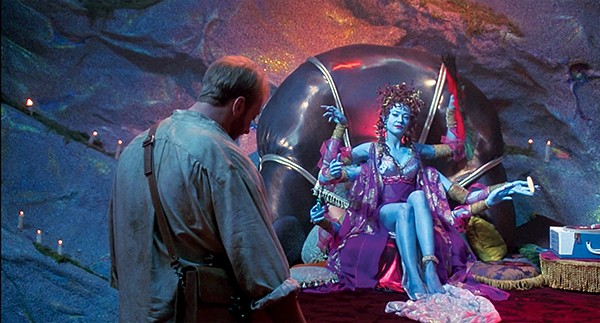
Cabin Boy
The paterfamilias Elliott will also host a screening of his Tim Burton-produced feature film Cabin Boy. It was greeted as a baffling mess when it was released in 1994, but the over-the-top nautical comedy has earned a cult following over the years and is now considered a founding document of contemporary alternative comedy.
DIY World
Since the 2000 debut of Craig Brewer’s The Poor & Hungry, Indie Memphis has been a champion of the scruffy, do-it-yourself digital film underground. The movement, which began in Denmark in 1998 with Thomas Vinterberg’s The Celebration, presaged both YouTube culture and the social realism of today’s prestige TV. Two very different films in Indie Memphis show the power and enduring appeal of street level digital rebels.
Korean director Sang-soo Hong is incredibly prolific, but his works are rarely seen in America. Indie Memphis is featuring four of his films that have never screened in the region for a special retrospective. Claire’s Camera (November 2nd, 7 p.m., Studio on the Square), was shot on location during the 2016 Cannes Film Festival. The delicate piece is a master class of elliptical storytelling and subtle character development that begins with a young woman Jeon Manhee (Min-hee Kim) losing her job as a film sales agent after her boss decides she is no longer trustworthy. The layered story plays out patiently through the eyes of Claire (Isabelle Huppert), a French woman whose photography hobby turns out to be a critical fulcrum in the lives of people she barely knows. The subtle story plays out in riveting long takes, and the bilingual production finds commonality in the human stories of characters who come from very different cultures.
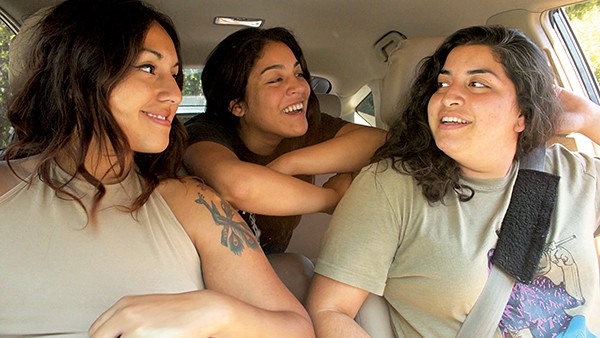
Sepulveda
On the other side of the world is Sepulveda (November 3rd, 10:30 a.m., Hattiloo Theatre). Directed by Brandon Wilson and Jena English, it’s a tribute to friendship and a love letter to the trashy glory of Los Angeles. Kristina Amaya, Karla Jovel, and Leslie Reyes star as three old friends trying to navigate life five years after high school graduation. One night at a house party, they spontaneously decide to go on a road trip through L.A. by driving the longest street in the city, the 73-mile long Sepulveda Boulevard. Armed with raging hangovers and a trusty red Prius, the trio tackle gentrification, growing up Hispanic in America, and the urgent task of finding a place to pee in Los Angeles.
Sepulveda echoes the pleasures of Indie Memphis classics such as Blue Citrus Hearts and Team Picture — deeply considered characterization, improvised dialogue that spins off into either hilarious riffs or profound emotional revelations, and the sheer joys of getting your friends together and turning on a camera. It’s this radical humanity, so often lacking in mainstream film, to which Indie Memphis has always been passionately devoted.

